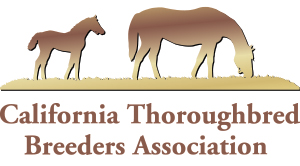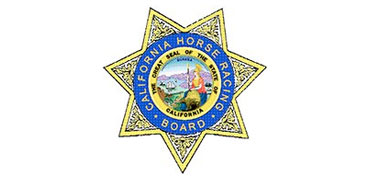From CHRB
SACRAMENTO, Calif. (Aug. 23, 2021) – Dr. Timothy Grande is helping the California Horse Racing Board meet its obligation to protect horses and riders.
While Dr. Grande has long been involved in safety efforts as Official Veterinarian (OV) on Southern California’s thoroughbred circuit, he recently increased his commitment by stepping into the newly created position of Chief Official Veterinarian (COV) for all of California racing.
Dr. Grande has been working in tandem since July 1 with Dr. Jeffrey Blea, the CHRB’s equine medical director (EMD). Exactly how that teamwork will play out has yet to be fully determined, but both have some thoughts on the matter, as does CHRB Executive Director Scott Chaney.
“We have been fortunate to benefit from the expertise of Dr. Grande for a number of years in California,” said Chaney. “He pioneered the concept of the entry review panel. With this new, expanded role, California further enhances its commitment to animal welfare.”
Dr. Blea added, “I worked with Dr. Grande for many years on the backside as a practitioner and have always found him to be very ethical, fair, and efficient in his duties as an official vet. I believe Dr. Grande shares a similar vision to facilitate racehorse safety and racing integrity, and I am excited to have him on the team and look forward to working with him.
Dr. Grande elaborated on some of those thoughts.
“The CHRB created the COV position partly because the EMD position had expanded significantly and become very extensive,” explained Dr. Grande. “We determined that some of that work could be done by the COV.
“Standardization is one of the COV’s principal objectives. For example, the entry review panel started at Santa Anita in 2019, reviewing information on horses to determine whether they were fit to compete. I have been on that panel since its inception. Now we have added one at Los Alamitos and one for Northern California race meets, Eventually, these will be mandated by rule, so there’s a need to standardize their operations – get it to a point where it’s fairly objective. Eventually I will no longer sit on any panel but will supervise them all.
“I helped develop the necropsy review process. We did the bulk of that work in 2019. That also needs to be standardized statewide with some additional oversight.
“Every track has an Official Veterinarian with the same fundamental tasks and responsibilities throughout the state. However, for logistical reasons they do things somewhat differently at each track. Ideally, we want consistency in how they oversee the barn area and race-day operations.
“We will be looking for different ways to improve operations,” he continued. “Right now only one track, Santa Anita, has an extensive video surveillance system in the stable area. Eventually other facilities should have similar systems. Sometimes things crop up (in video surveillance) that need to be reviewed by a regulatory veterinarian or a CHRB investigator.
“A large part of the job is assisting the EMD. This includes helping develop education modules (materials) for the continuing education program for trainers, formulating research projects, and communicating with horsemen regarding new and pending regulations. Disseminating information to horsemen will be an important function of the COV.
“Developing regulations is a general category involving the COV, though not expressly. It falls under the umbrella of assisting the EMD. If I have an idea for new or revised rule, I will discuss it with the EMD and help develop it,” he concluded.


